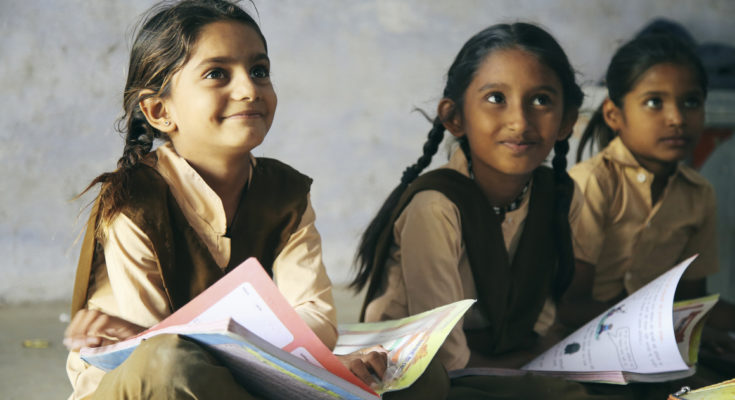Women play multiple roles in society like sole income earner of her family or taking care of her family as a wife, mother, and daughter. Even though women make equal contributions as men in the nation’s development, societal limitations restrict them from realizing their full potential. They are positioned at the receiving end. In fact, they are often deprived of their fundamental constitutional and civil rights in a country like India. The patriarchal society influences every aspect of their life. Most of the women end up accepting traditional practices like early marriage, dowry, female foeticide. In 2014, UNICEF found that more than 5 million child brides are in India. Population Research Institute in 2018 estimated that out of 100 million globally, more than 11 million sex selective, female foeticides happen in India. Even in the 21st century, women are oppressed in many ways like domestic violence, rape, child trafficking, sexual harassment at the workplace, etc. Action India surveyed 90000 women in 2004 and found that 40% of married women face physical assault, and 56% justify it. The leading cause of all these issues lies in the unchanging patriarchal mindset. The government is safeguarding women’s rights and introducing new plans, development policies, and programs on the national and state level aimed at their advancement. On the other hand, NGOs and several activists are solving these issues at the grassroots level. However, the long-term solution to address these issues lies in changing rigid patriarchal mindsets and these are best done through education.
During our candid, inspiring, and heart-warming discussion with Dr. Urvashi Sahni, the Founder & CEO of Study Hall Educational Foundation, we realize there is a need for transforming education to use it as a tool for social transformation. At present, it is irrelevant and disconnected from life. There is importance given to content-based learning, and it fails to challenge social norms and develop critical thinking and questioning in students. Women should be enabled by education to learn who they are, to examine their living condition, and why they are treated unequally. Patriarchy is a human made, historical construct, and it can be deconstructed through education. In 1982, Dr.Sahni’s own 24 year old cousin was burnt to death, most likely due to dowry harassment. That is when she started questioning our society and its norms. Dr. Sahni founded Suraksha, an organisation for women’s rights. Through this organization, she conducted counselling sessions with victims of dowry practices and domestic violence. She found out that even though women had academic skills, they did not learn how to use these skills to take charge of their lives. She started thinking of education very seriously and pursued her MA and Ph.D. from UC Berkeley. She further founded Study Hall Education Foundation for empowering students and teachers to act as changemakers. Through this foundation, she taught critical feminist pedagogy to 1 lakh teachers and 50 lakh students belonging to marginalized communities. The foundation has conducted critical dialogues through India’s Daughter Campaign to try to change the cruel patriarchal mindset of society, by involving teachers, students and parents – all stakeholders. By taking small steps, it is trying to change the world one step at a time. Then those lives will influence and change more lives.
(Source: https://www.developmentnews.in/tag/study-hall-education-foundation/)
Critical Feminist Pedagogy can help in transforming education in the following ways. First, it helps students identify the norms which are laid down by the patriarchal society, especially the strict boundaries set for women. It then encourages students to find out why these social forces against women exist and how they impact girls’ lives. Then students are empowered to look critically at these forces by engaging in facilitated critical dialogues. They are also helped, through poetry, drama and literature to imagine a different more equal future. Finally, the students are empowered to take action to challenge these social norms and structures and thereby transform their own lives and those of others. Teachers act as the catalyst/ facilitator of this process. So, for this pedagogy to be successful, teachers need to be trained, to be motivated and engaged with the students. They must progress and move beyond the academic curriculum. For that, teachers need to recognize their biases, be aware of the critical dialogue methodology, assess the impact of their efforts, and engage with the parents.
Dr.Sahni is a consultative, collaborative, and nurturing leader. Instead of leading the team from the front, she walks alongside and learns from the group. She believes in a shared vision and for that nurtures the team to the expected standard. She was part of the Advisory Council to help the Chief Minister of Rajasthan in policies and schemes related to school education. She repaired broken education systems with initiatives like school integration, travel vouchers, transfer rationalization, curriculum development, training, and mapping teachers, increasing accountability of teachers, and collecting school data accurately through the technology portal with the help of NGOs and other activists. Even though the path of social entrepreneurs is complex, challenging and there is a vast system against them, what keeps Dr.Sahni motivated is a strong belief that society’s mindset can change.
After working for six years and consulting with policymakers, educators, and civil society members, India has come up with the National Education Policy (NEP), which aims to provide equitable access to all irrespective of their economic and social background. Some of the reforms which are proposed in the policy are the inclusion of Socio-Economically Disadvantaged Groups (SEDGs), children belonging to rural areas, victims of human trafficking, Dalits, and children of foundation age. Dr.Sahni is part of the steering committee, which is responsible for implementing NEP in Uttar Pradesh. She feels that the policy is progressive and ambitious. However, there is still opportunity left for the government on the implementation part. The policy does not talk about governance and management issues. For NEP to succeed, it should overcome the greatest challenge of strong governance of effective public-school systems.
Dr.Sahni has been working as a changemaker in the education field for more than three decades. She is a disruptive innovator, women’s rights activist, and social entrepreneur. The main focus of her work was on gender equity and life outcome priorities. Her work has built credibility, track record, mindset change, and courage to change education systems from inside and outside. More such people are needed to be involved in this movement and contribute to making the education system equitable, inclusive, and robust.
References:
https://www.brookings.edu/wp-content/uploads/2018/12/US_Policy-Brief_FOR-WEBSITE.pdf
http://www.studyhallfoundation.org/urvashi-sahni.php




